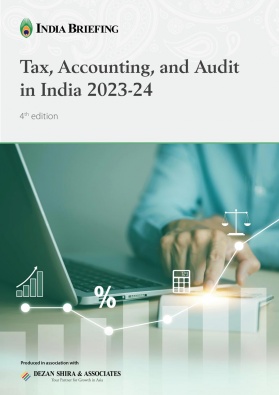Merger Control Regime in India: Analyzing the 2023 Revisions to the Competition Law
The Competition (Amendment) Act, 2023 in India brings major changes to the merger control regime. Key amendments include the inclusion of hub and spoke cartels, appreciable adverse effect on competition (AAEC) analysis incorporating consumer harm, introduction of a limitation period for filing inquiries, mandatory deposits for appeals, increased penalties for false statements, enhanced powers for the Director General, a deal value threshold for combinations, determining “control” based on “material influence,” revised procedural timelines for faster approval of transactions, imposition of penalties based on global turnover, and settlement and commitment mechanism for abuse of dominance and anti-competitive agreements.
We discuss how these amendments seek to enhance competition enforcement, streamline processes, and impose stricter penalties for anti-competitive behavior.
India’s Competition (Amendment) Act, 2023 obtained the Presidential assent on April 11, 2023. Following this, on May 18, 2023, the Ministry of Corporate Affairs (MCA) notified the enforcement of some specific provisions of the Competition (Amendment) Act. The remaining provisions will come into effect upon their official publication in the gazette.
The Competition (Amendment) Act introduces a comprehensive range of revisions with far-reaching impact for corporate governance and commercial behavior of entities in India. This includes via changes to the merger control regime, provisions addressing behavioral issues, and the enforcement framework established by the Act.
Consequently, businesses operating in India need to take note of whether they are compliant with the provisions of the amended competition law.
Amendments under the Competition (Amendment) Act, 2023 whose provisions are notified
To clarify, these are provisions that were officially notified on May 18, 2023, and are therefore being enforced.
Hub and spoke cartels
The Competition Act now incorporates broader provisions for anti-competitive horizontal agreements, encompassing any entity that “participates or intends to participate in the furtherance of such agreements.” This expansion widens the scope of cartels to include all participants and facilitators, regardless of whether they are involved in identical or similar trades as the other parties. Consequently, the Competition Commission of India (CCI) gains the authority to examine and evaluate anti-competitive coordination occurring through hub and spoke arrangements, such as collusion facilitated by trade associations, within the framework of the cartel provisions of the Competition Act.
The earlier provisions of the Competition Act in India only covered agreements between entities or individuals engaged in similar or identical trades or services. Proof of a cartel arrangement depended on establishing collusion at either the horizontal or vertical levels. This excluded hub and spoke arrangements, where a central entity controls multiple players in the same horizontal level. Hub and spoke cartels are difficult to prove since collusion between the individual players is not easily established, making it challenging to bring them within the scope of cartels.
To address this gap, the 2022 Bill proposed a presumption that an enterprise or association actively participating in the furtherance of an agreement would be considered part of the cartel, regardless of whether they were engaged in similar trades. However, concerns were raised by industry associations regarding the vague wording, as it could inadvertently implicate e-commerce platforms and industry associations that provide communication platforms but have no intention of participating in cartel activities.
The MCA argued that industry associations often facilitate agreements that fix prices or allocate markets and that the presumption was rebuttable. Nonetheless, the Parliamentary Committee acknowledged the lack of clarity and recommended that the provision should only cover entities proven to have intended to actively participate.
However, the 2023 Amendment Act now states that an enterprise, association, or person, even if not engaged in similar trades, will be presumed to be part of the agreement if they participate or intend to participate in its furtherance. This disregards the Parliamentary Committee’s recommendation and includes both participation and the intent to participate in such agreements. Thus, the lack of clarity highlighted by the Parliamentary Committee, as well as industry associations, remains unresolved.
Appreciable adverse effect on competition (AAEC) analysis includes consumer harm
According to the Amendment Act, if a combination is expected to have a significant negative impact on competition, the CCI will issue a statement of objections to the concerned parties. The parties will be directed to provide explanations as to why the combination should be permitted. Both the parties involved in the combination and the CCI itself (if initiated suo motu) have the option to propose modifications, as outlined in the Amendment Act.
Inclusion of limitation period
The Competition Amendment Act has introduced a time limitation of three years from the date on which the cause of action arises for entertaining any information or reference regarding an inquiry into an alleged contravention under Section 3 and 4 of the Act. The CCI has the authority to excuse any delay if there is a valid reason for not filing such information or reference within the specified period. In such cases, the CCI must provide a recorded rationale for condoning the delay.
Mandatory deposit for appeals
The Amendment Act has introduced a new provision regarding mandatory deposits for filing appeals. According to this provision, if a party wishes to file an appeal against an order issued by the CCI, they must deposit 25 percent of the penalty imposed by the CCI before they can approach the National Company Law Appellate Tribunal (NCLAT).
Increased penalties for false statements and omission of material information
Under the Competition Act 2002, penalties were imposed on parties involved in combinations if they made materially false statements or knowingly false statements, or if they omitted or failed to provide material information. The Competition (Amendment) Act has raised the maximum penalty for such actions. The penalty for making false statements or omitting material information has now been increased from INR 10 million to INR 50 million.
Enhanced powers of the Director General (DG) to investigate contraventions
The Amendment Act has introduced several provisions that grant increased powers to the DG. These include:
- The authority to request any party to provide information, documents, books, or papers.
- The ability to retain the information, documents, books, records, papers, etc. obtained during the investigation for a duration of 180 days, which can be extended by an additional 180 days if necessary.
- The power to examine, under oath, any officers, employees, agents of the party under investigation, as well as other individuals (subject to approval from the CCI).
- Defined powers, procedures, and conditions for search and seizure of information, documents, books, records, papers, etc.
These provisions empower the DG to conduct thorough investigations and gather relevant evidence for the enforcement of competition law.
Other major amendments yet to be notified
Introduction of deal value threshold and amendment to penalty provision
Under the existing provisions of the Competition Act 2002, transactions involving parties with either (a) cumulative assets exceeding INR 10 billion, or (b) cumulative turnover exceeding INR 30 billion, will require prior approval from the CCI, unless they qualify for any applicable exemptions.
The Competition Amendment Act 2023 introduces a new deal value threshold under Section 5 of the Act, specifically for “Combinations”. According to this provision, any transaction related to the acquisition of control, shares, voting rights, or assets of an enterprise, merger, or amalgamation, with a deal value exceeding INR 20 billion, will require approval from the CCI if the enterprise being acquired, merged, or amalgamated has substantial business operations in India. The CCI will issue regulations to determine the criteria for defining “substantial business operations in India.”
It’s important to note that even if a “de minimis exemption” applies, a transaction may still be notifiable to the CCI if it meets the deal value thresholds. For the purposes of this provision, the value of the transaction includes all valuable considerations, both direct and indirect, including any deferred consideration.
The MCA has clarified to the Parliamentary Committee that the deal value threshold primarily targets digital and new-age markets. In these markets, target entities may have minimal assets and turnover but possess significant potential in terms of data, technology, and innovation. However, the Amendment Act does not restrict this amendment to any specific sector.
Lastly, the Amendment Act also amends the penalty provision under Section 43A of the Competition Act for failure to furnish information on combinations. The penalty is now set at a minimum of one percent of the higher value among assets, total turnover, or deal value.
Determining “control” based on “material influence”
The current framework of the Competition Act 2002 defines “control” as the ability to manage or influence the affairs of another enterprise or group. The CCI has clarified that control can be inferred from factors, such as shareholding, statutory rights, contractual rights (including veto rights and participation in management), as well as other sources like expertise, board representation, and financial arrangements. Control is considered a matter of degree, with all degrees and forms of control falling within its scope.
Over time, the CCI has interpreted “control” to include “material influence,” which encompasses factors enabling an enterprise or person to influence the management and affairs of another enterprise. Examples of material influence include board representation, exercise of special rights, negative rights, and more.
The Amendment Act 2023 aligns with the CCI’s decisional practice by formally amending the definition of “control” to include the ability to exercise “material influence” over the management, affairs, or strategic commercial decisions of an entity or group.
The inclusion of an indicative list in the forthcoming CCI regulations to determine “material influence” is expected to streamline the CCI’s approach in assessing control related to a target entity and help eliminate ambiguity surrounding the concept of control.
Procedural timelines and faster approval of transactions
The Amendment Act 2023 introduces several changes to the procedural timelines, aiming to expedite the approval process for transactions.
The existing Act allows a period of 210 days from the date of notification to the CCI for a combination to become effective. However, under the Amendment Act, this timeline has been reduced to 150 days.
Additionally, the Amendment Act mandates that the CCI must form a prima facie opinion on a combination within 30 calendar days. If the CCI fails to form such an opinion within the specified timeline, the combination will be deemed approved, and no separate order from the CCI will be required. The CCI also has the authority to propose modifications or accept suo motu modifications before forming a prima facie opinion.
These amendments aim to streamline the approval process and ensure faster decision-making on combinations by the CCI.
Imposition of penalties based on global turnover
The Amendment Act introduces a significant change regarding the imposition of penalties for anti-competitive agreements and abuse of dominant position. Under the new provision, penalties will be levied on all parties involved in such agreements or the party that has abused its dominant position, based on their global turnover derived from all products and services.
This represents a paradigm shift as multinational conglomerates will now be subject to much larger penalties. This amendment overrides the principles established in the Supreme Court’s ruling in the case of Excel Crop Care Ltd. v. CCI, where penalties were based on the party’s “relevant turnover” for anti-competitive conduct.
Additionally, in the case of anti-competitive agreements entered into by a cartel, penalties will be imposed on each producer, seller, distributor, trader, or service provider included in the cartel. The penalty will be determined according to the provisions outlined in the Amendment Act, with a penalty imposed for each year that the agreement continues.
These changes reflect a more stringent approach to penalties, ensuring that parties engaging in anti-competitive behavior face substantial financial consequences based on their global turnover.
Settlement and commitment mechanism for abuse of dominance and anti-competitive agreements
The Amendment Act 2023 introduces a settlement and commitment mechanism for enterprises facing inquiries related to abuse of dominance or anti-competitive agreements.
Under this mechanism, an enterprise can choose to submit an application for settlement to the CCI after receiving the DG’s report but before the CCI passes an order. The specific timeline and modalities for the settlement process will be specified through regulations. The CCI will evaluate the nature, gravity, and impact of the contraventions and may accept the settlement proposal, subject to terms and implementation details specified in the regulations. If the CCI and the concerned party do not reach an agreement on settlement, or if the CCI deems settlement inappropriate, the inquiry will proceed.
Similar procedures are outlined for offering commitments, where enterprises can apply to provide commitments to the CCI after the CCI has directed the DG to investigate based on a prima facie opinion but before the DG sends their report. The CCI will consider the nature, gravity, impact, and effectiveness of the proposed commitments before accepting or rejecting them.
The detailed procedures for the settlement and commitment mechanisms will be prescribed in regulations. Decisions made by the CCI in relation to settlement or commitments are not appealable.
However, if the applicant fails to comply with the CCI’s order, makes false or incomplete disclosures, or if there is a material change in the facts, the CCI’s order will be revoked and withdrawn. The applicant may be liable to pay legal costs up to INR 10 million, and the inquiry regarding abuse of dominance or anti-competitive agreements may be initiated or reinstated.
The settlement and commitment framework aims to reduce litigation and expedite complaint resolution with more flexibility. It’s worth noting that compensation may also be awarded in settlement cases, adding to the potential liability for entities opting for the settlement mechanism.
Derogation for open market purchases
Under the Amendment Act, open market purchases can now be conducted before obtaining approval from the CCI, given that certain conditions are met. These conditions include:
- The parties must seek approval from the CCI for the acquisition within a specified timeframe set by the CCI.
- The exercise of ownership or beneficial rights associated with the shares obtained through open market purchases should occur only after receiving approval from the CCI.
This provision empowers parties to structure transactions that involve open market purchases without the risk of gun-jumping, which refers to engaging in activities that could be seen as anti-competitive prior to receiving necessary approvals.
Revised timeline for investigation of combinations
The Amendment Act 2023 has introduced various changes to the procedures and processes related to the investigation of combinations. Below table provides a summary of the revised timeline:
|
Section of Competition Act, 2002 |
Provisions |
Old timeline |
Revised timeline |
|
Section 29(1) |
Party’s response to show cause notice by CCI in combination cases |
30 days from the date of receipt of show cause notice |
15 days from the date of receipt of show cause notice |
|
Section 29(2) |
Notice issued by CCI to parties in combination cases |
Seven working days from the date of receipt of response of the parties |
Seven days from the date of receipt of response of the parties |
|
Section 29(2) |
Publication of relevant information by parties to the combination |
10 working days from the direction of CCI |
Seven days from the direction of CCI |
|
Section 29(3) |
Invitation for written objections from affected or potentially affected parties |
15 working days from the date on which the information about the combination is published |
10 days from the date on which the information about the combination is published |
|
Section 29(4) |
Request for additional information from parties to the combination by CCI |
15 working days from the expiry of the period under section 29(3) |
Seven days from the expiry of the period under section 29(3) |
|
Section 29(5) |
Parties to furnish information sought by CCI |
15 days from the expiry of the period specified under section 29(4) |
10 days from the expiry of the period specified under section 29(4) |
Related Reading
- Regulatory Framework Governing Mergers and Acquisitions in India
- What You Need to Know About Conducting Due Diligence in India: Q&A
- India to Clear M&A Proposals Between 15-60 Days: In Effect June 15, 2023
About Us
India Briefing is produced by Dezan Shira & Associates. The firm assists foreign investors throughout Asia from offices across the world, including in Delhi and Mumbai. Readers may write to india@dezshira.com for more support on doing business in India.
We also maintain offices or have alliance partners assisting foreign investors in Indonesia, Singapore, Vietnam, Philippines, Malaysia, Thailand, Italy, Germany, and the United States, in addition to practices in Bangladesh and Russia.
- Previous Article India Unveils Draft Green Credit Program to Incentivize Sustainable Practices
- Next Article Regulatory Framework Governing Mergers and Acquisitions in India










